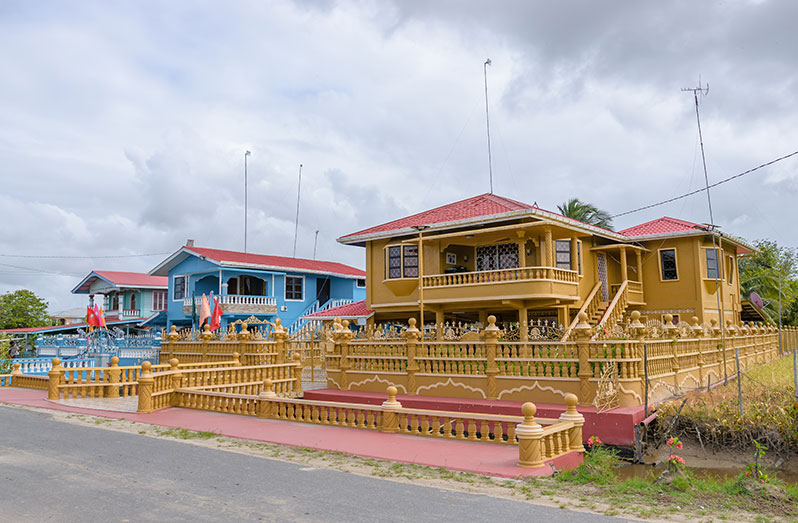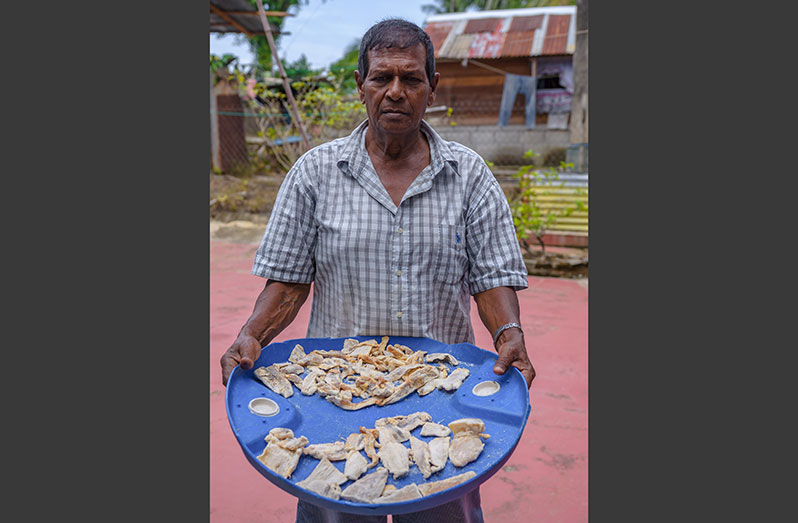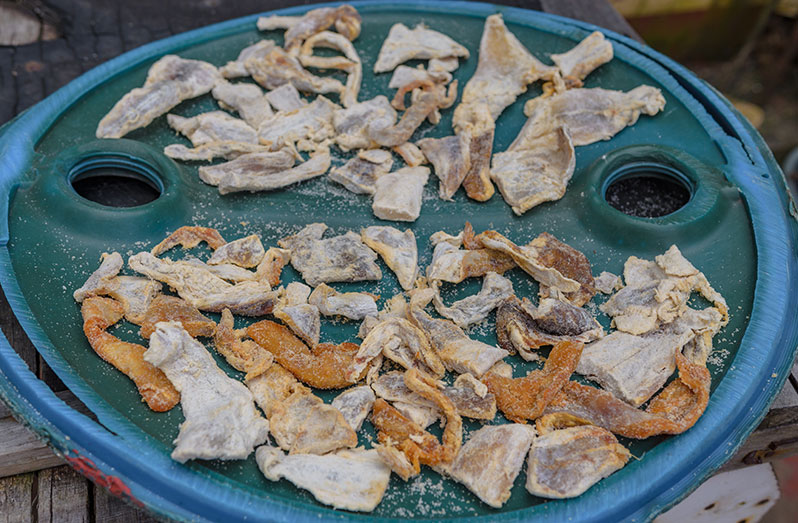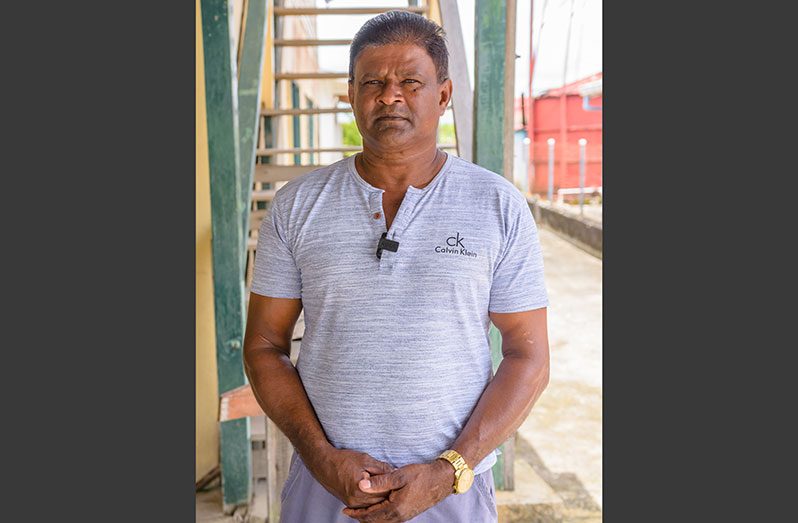BEING one of the largest plantain farmers on Wakenaam Island, Essequibo River, Satnarine Singh better known as ‘Tom,’ is optimistic that plantains have a lot of potential for development on the island.
The 57-year-old has been farming for the past 37 years and has 200 acres of plantain farm and provides employment for 15 to 20 people who have housing accommodation on the island, free of charge.
Singh told the Pepperpot Magazine that he produces about 800 pounds of high-quality plantains per week, and most of it is utilised right on the island with little or no value to him.
The father of three is a local of Wakenaam but was raised in his home village of Maria Johanna, but later relocated to another part of the island.
Singh explained that there is a need to reduce the advantage of pricing as it relates to retail marketing; for instance, a pound of plantain is $150 on the island and when it is bought for re-selling, the price goes up to 100 percent.

He disclosed that this method puts pressure on farmers in terms of demand, and there goes his call for a Farmer’s Market in which all can benefit directly without wholesale buyers manipulating the pricing and market.
The farmer added that with a Farmer’s Market, the farmers could get directly to the consumers, and the product comes off the market very quickly due to the reduced prices.
Singh stated that despite challenges, they have a lot to be thankful for on the island. They have received a lot of support from the National Drainage and Irrigation Authority (NDIA) and the Ministry of Agriculture.
“On this island, every inch of land is used for farming, so plantain is produced on a very large scale and it is considered gold now,” he said.
Singh estimated that about one million pounds of plantains come from Wakenaam annually and they want consumers to benefit from a reasonable price, since people are still paying $250 per pound for plantains, which he said is ludicrous.
He pointed out that on the island they are trying to open up even more lands, which means a lot production and a better supply to consumers.
Singh also plants watermelons, and pumpkins and is thinking about going into coconuts, since the Ministry of Agriculture has opened a nursery at Wakenaam, which is very convenient for him.
“We the farmers also need a reliable speedboat service other than the two we have, which do not have a turn system with no schedule, causing lengthy delays to passengers to transport our produce directly to Parika to remain viable,” he said.
Singh added that they have increased the fare per passenger from $1000 to $1500 and it is a waste of time for the travelling public to have to spend such long hours waiting for the boat service which provides a poor service.
The farmer stated that despite that, Wakenaam is a happy place to live because it is very safe and they are a welcoming, hospitable people.
The sun-dried fillet banga mary slated fish small business
Meanwhile, also on the island is the home and small business of Arneka Persaud, a local of Wakenaam, who has lived all his life there.
The 68-year-old resides with his wife, and together, they have a small roadside stand selling ground provisions, vegetables and their sun-dried fillet salted fish.
He is the father of two and they have a lovely home in Sans Souci village in Wakenaam.

Persaud told the Pepperpot Magazine that he would journey to Parika where he would buy the banga mary on a wholesale basis – about 30 pounds- after which he would take it home for the necessary preparation.
The villager added that the process of preparing the fish is lengthy and time-consuming, but they do it anyway as a small business to offset expenses.
He explained that the fish, once prepared, takes four days to fully sun-dry before packaging for sale at just $600 per pound.

“We newly started this business, only a month now, so we will see how it goes if we can continue,” he said.
Persaud said life on the island is good, but for it to remain that way they have to work.



.jpg)








